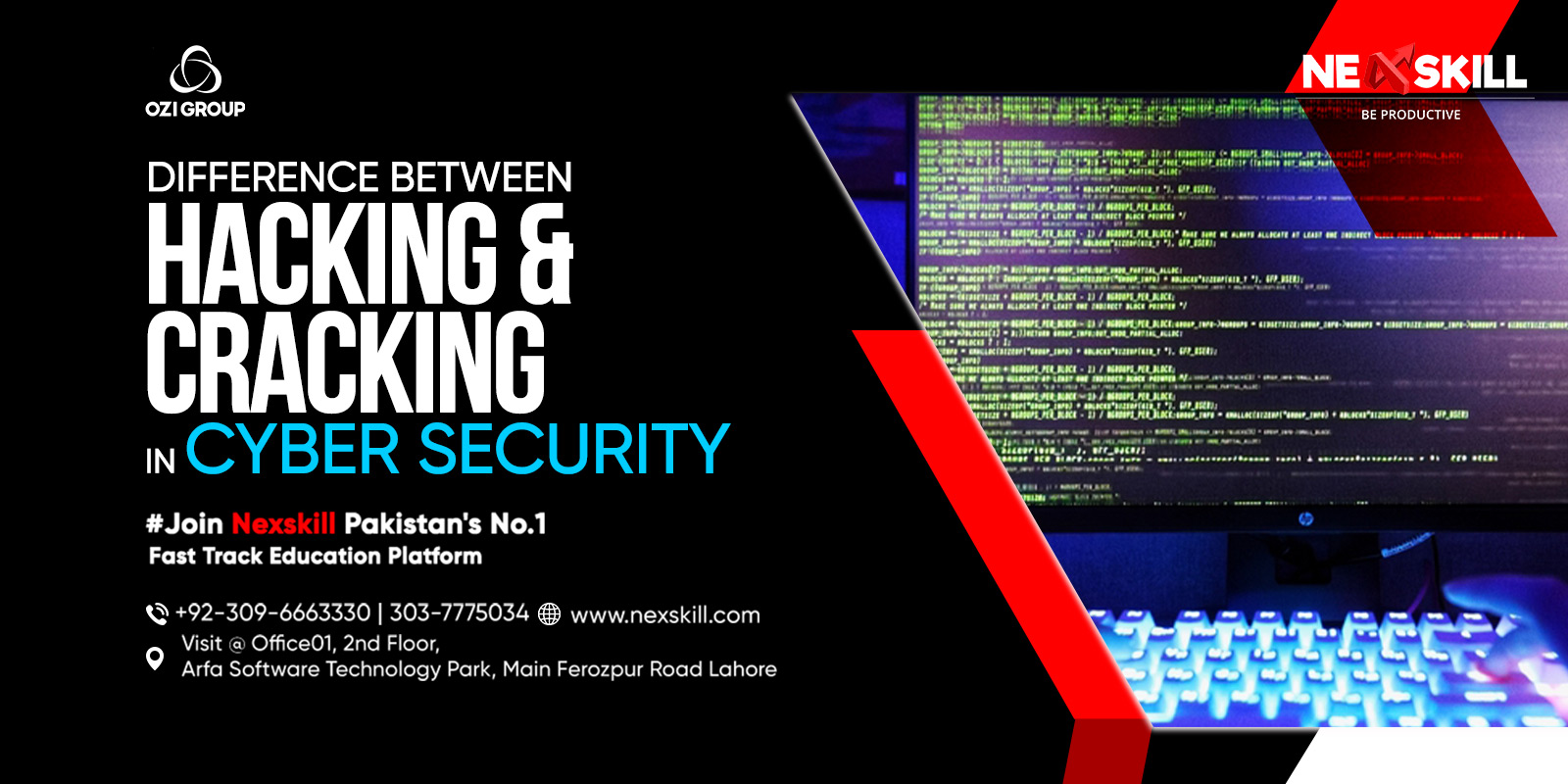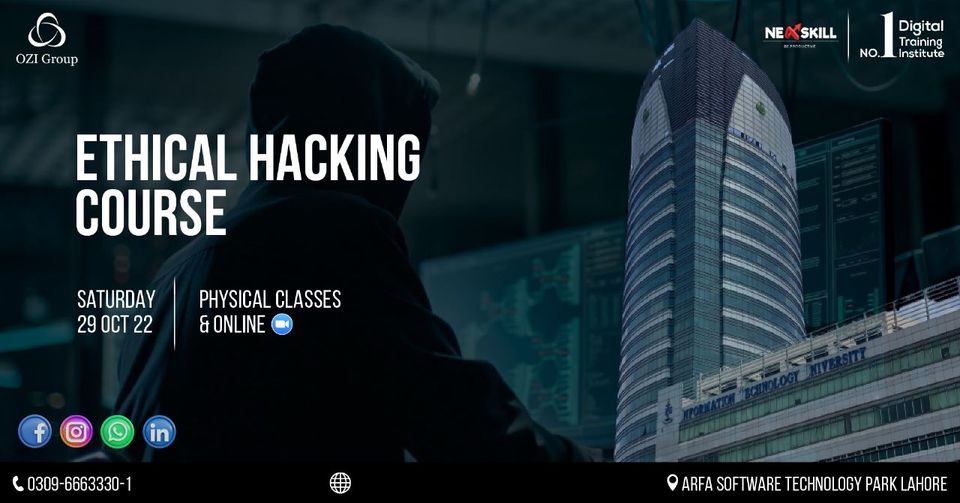
Introduction:
Cyber security is an integral part of our digital world. Every day, cybercriminals are using different methods to gain unauthorized access to our sensitive information, and it is up to the cybersecurity professionals to protect us from these cyber-attacks. Two terms that are often used interchangeably in the cybersecurity domain are hacking and cracking. So in this blog, we will aim to understand the distinctions between these two terms, the motivations behind them, the tools and techniques used, and their impact on individuals and organizations.
Hacking: Ethical vs. Unethical Practices
Hacking is the process of gaining unauthorized access to a computer system or network. However, hacking is not always a malicious activity. Ethical hacking, also known as white hat hacking, is when cybersecurity experts legally conduct penetration testing on a system to identify vulnerabilities and provide recommendations on how to secure them. So ethical hacking is offered as a service by cybersecurity firms and is usually conducted with the knowledge and permission of the owner of the system. This type of hacking helps organizations identify weaknesses in their cybersecurity protocols and improve them before a malicious attacker can exploit them.

On the other hand, unethical hacking is conducted by black hat hackers, whose primary motivation is to gain unauthorized access to a system, network, or information for their personal gain. They usually use hacking techniques such as password cracking, social engineering, and phishing attacks to gain access to sensitive information, which they can use for financial gain or other illicit purposes. Such activities are illegal and can have severe consequences.
Cracking: Illegal Activities and Unauthorized Access
Cracking is the process of breaking into a computer system or network with the intent of stealing confidential information or causing damage to the system. Crackers, also known as black hat hackers, use their expertise to gain unauthorized access to a system. For their personal gain without the permission of the owner.
Some common forms of illegal hacking activities include software piracy, distributed denial of service (DDoS) attacks, credential harvesting. And exploiting software vulnerabilities to gain access to sensitive data. Such activities are considered criminal offenses and are punishable by law.
Motivations Behind Hacking and Cracking Activities
Hacktivism is a type of hacking that involves the use of technology to promote social, political, or ideological change. Hacktivists use their skills to hack into government organizations, political parties, or corporations to leak confidential data or wreak havoc on their systems. So the primary objective is to expose injustice or highlight a cause to the public.
Some hackers are motivated by financial gain. These hackers are usually involved in stealing financial information such as bank accounts or credit card numbers. So they use their hacking skills to steal money or commit fraud. Another motivation for cybercriminals is intellectual property theft. Such activities involve stealing company secrets, patented information, or confidential data to sell to the highest bidder.
The Tools and Techniques Used in Hacking and Cracking
Hackers and crackers use a wide range of tools and techniques to gain unauthorized access to systems. Some of the commonly used tools and techniques include vulnerability scanning tools, password cracking software, social engineering techniques, and malware.
Vulnerability scanning tools are used to identify vulnerabilities in a system or network that can be exploited for unauthorized access. So password cracking software is used to identify or crack passwords to gain entry to a system. Social engineering techniques involve manipulating an individual to reveal sensitive information. Malware is malicious software that is designed to compromise a system, network, or data.
The Impact of Hacking and Cracking on Individuals and Organizations
The impact of hacking and cracking on individuals and organizations can be devastating. Data breaches can lead to legal and regulatory penalties, financial losses, and damage to an organization’s reputation. Identity theft incidents can result in personal financial losses and reputational damage. Moreover, hacking incidents can lead to system downtime or service interruptions, causing significant losses for organizations.
Cybersecurity Measures to Protect Against Hacking and Cracking Attacks
Organizations can implement cybersecurity measures to protect against hacking and cracking attacks. Some of the commonly used measures include firewalls and intrusion detection systems (IDS), strong password policies, employee training, and implementing multi-factor authentication.
Cybersecurity Course Offered by Nexskill
Understanding the Benefits of Taking a Cyber Security Course
With the rapid advancements in technology, cybersecurity has become an integral part of every organization. Taking a cybersecurity course can equip you with the essential skills needed to protect individuals and organizations from cyber threats. The course also opens doors to career opportunities in cybersecurity, which is becoming an in-demand field with excellent job prospects.
An Overview of the Cyber Security Course by Nexskill
Nexskill offers a comprehensive cybersecurity course designed to provide learners with the necessary skills to protect systems and networks from cyber-attacks. The course curriculum covers topics such as network security fundamentals, threat detection and prevention techniques, incident response and management, and ethical hacking skills.
The Key Skills and Knowledge You’ll Gain from the Course
The Nexskill cybersecurity course will help you gain the critical skills and knowledge required for a successful career in cybersecurity. So you will learn ethical hacking skills and network security fundamentals, allowing you to detect and prevent cyber threats. You’ll also learn about incident response and management, which is crucial for containing and mitigating the impact of a cybersecurity attack.
How This Course Can Make You More Productive in Your Personal & Professional Life
By taking the Nexskill cybersecurity course, you will become more aware of online threats and know how to protect your personal information and sensitive data effectively. The course will also enhance your problem-solving skills related to cyber threats, which will be beneficial in your professional life.
Taking Your First Step Towards a Successful Career in Cyber Security with Nexskill’s Course
Enrolling in the Nexskill cybersecurity course is easy. You can visit their website and fill out an enrollment form. You can choose a payment plan that suits your budget. Completing the course will give you the necessary skills and knowledge to start or further your career in cybersecurity, a rewarding and in-demand field.
Conclusion
Hacking and cracking are two terms that are often used interchangeably. While hacking can be either ethical or unethical, and cracking is always illegal and unethical. The motivations behind these activities can range from hacktivism to financial gain and intellectual property theft. Organizations can protect themselves from cyber-attacks by implementing cybersecurity measures such as firewalls and intrusion detection systems (IDS), strong password policies, employee training, and implementing multi-factor authentication. By taking a cybersecurity course provided by organizations like Nexskill, individuals can further their careers in cybersecurity, becoming integral parts of organizations’ cybersecurity teams to protect them from cyber threats.

